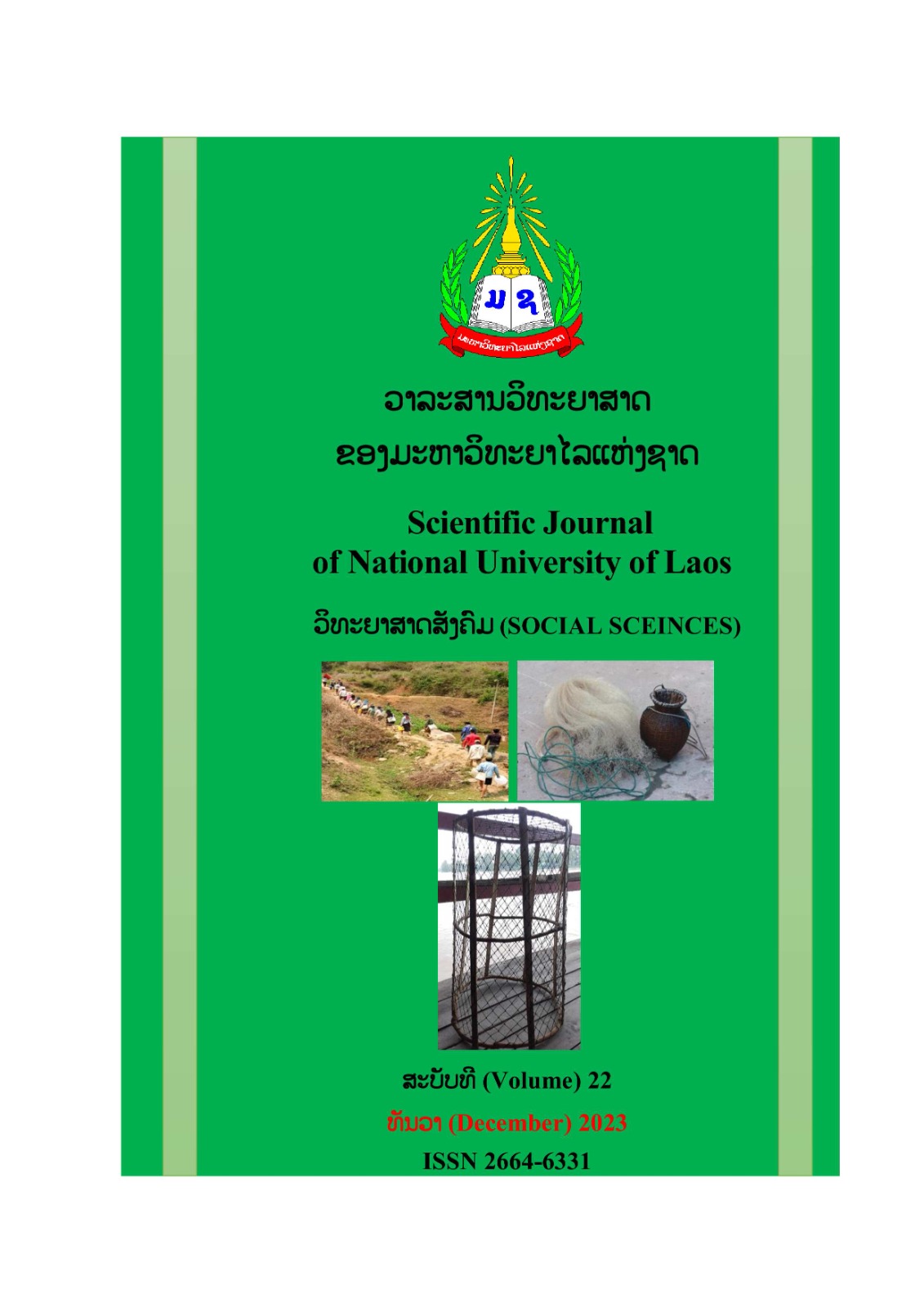Tracer Study (2015-2019) of The National University of Laos
Keywords:
Tracer, Study, National University of LaosAbstract
This tracer study employed mixed method design to trace alumni of NUOL who graduated between 2015 and 2019 and their employers deploying survey and interview with some alumni graduated in 2012, and 2014. 558 alumni (294 females), and 120 employers (33 females) from both public and private organisations as well as those who worked in non-government organisations, self-employed/running business, and unemployed, took part in this tracer study. The target groups located in 16 provinces throughout Lao PDR with academic background in the field of education, business administration, natural sciences, social science, engineering and architecture, legal education, agriculture and forestry, humanities and languages, medical, etc.
In terms of alumni’s employability findings depict that almost one third of the respondents looked for a job before graduation, and more than half of them searched for jobs after graduation. The rest of the respondents continued the job they already had before graduation, while some continued their studies, and others joined the family business. Findings showed that they found their first job through employment agency, newspaper, social media, and Office of Student Affair of NUOL.
Findings reveal that more than two third of respondents were employed. The rests were unemployed, looking for a job, and continuing their education. Two third of the alumni worked in government sectors, and the rest worked in private, NGOs sectors, and self-employed. In terms of job seeking, small number of respondents got first their job before graduation. From the most to the least, the respondents spent 1-3 months, 4-6 months, 7-8 months, and 10-12 months respectively in getting their first jobs. More than one third of graduates were recruited as technicians/academic staff. The rests were working as manager assistants, managers, journalist, service providers, and in handicraft sectors. Results also show that the vast majority worked full-time.
Findings from alumni survey illustrate that majority of respondents studied at NUOL because of the location (closed to home), getting government scholarships, programmes popularity, as well as parents and friends’ recommendation. The respondents pursued their fields of studies because of expecting to get good opportunity work, and getting high salary, getting government scholarships, getting recommendation from parents and friends, as well as having no choice to study other fields.
Most of the respondents were highly appreciated the academic excellence, including qualification of academic staff, programme contents, materials, and management. However, the respondents clearly showed that practical learning is still weak and that the equipment for developing practical learning is poor. The respondents feel that they were not well prepared for the transition between the university and the labour market. NUOL needs to improve academic knowledge and skills by focusing on more practices, and less theories. Alumni and employer respondents suggested that NUOL needs to establishment better connection with private sectors to develop practical aspects of the programmes by making it more relevant to industries. Duration of internship should also be longer, and in a field that is relevant to students' studies. Soft or transferable skills such as team building skills, troubleshooting skills, lifelong learning skills, and adaptability. IT and English courses are needed to be integrated in all programmes.
More attention is needed to improve facility and infrastructure, teaching and learning equipment, and more support to disadvantaged students, and career seeking of the graduates.

